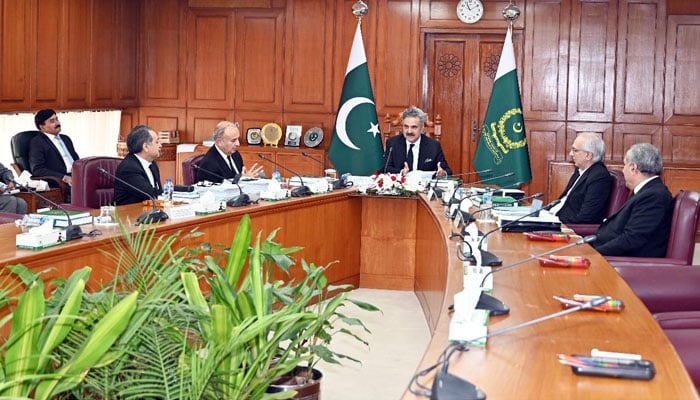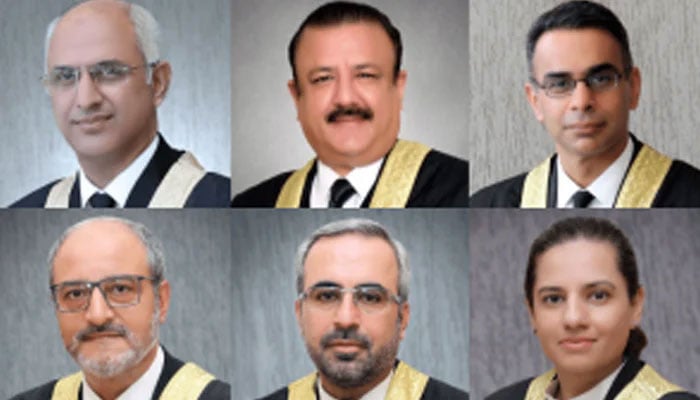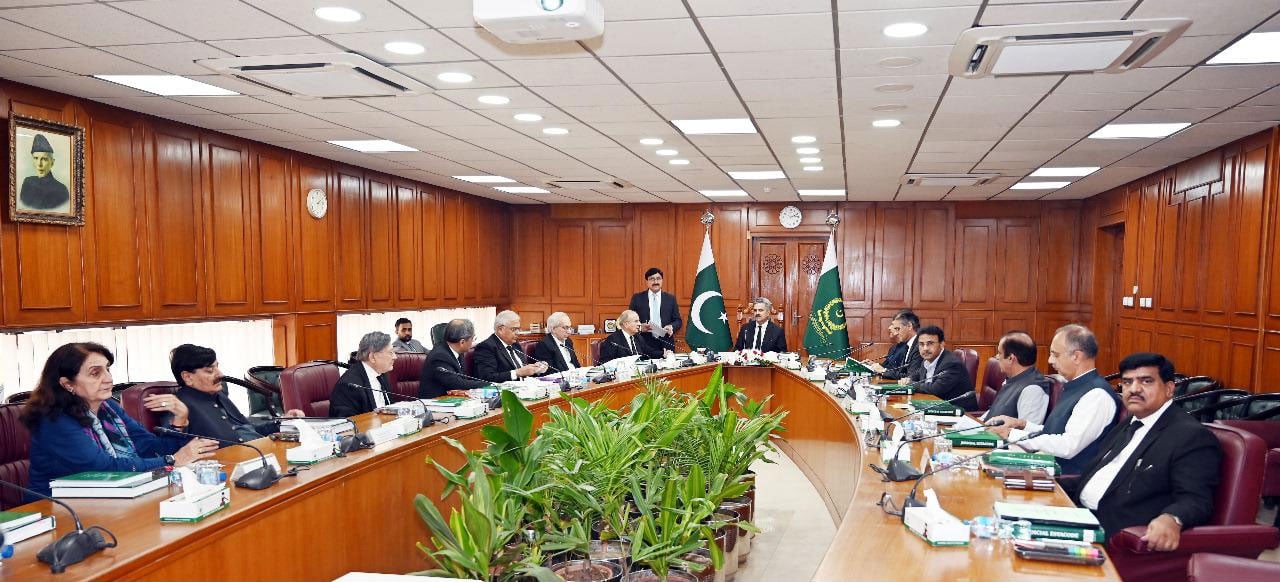The Supreme Judicial Council (SJC) has determined to increase scope of session on the letter written by six judges of Islamabad Excessive Courtroom (IHC), alleging “brazen meddling” by the nation’s intelligence companies in judicial affairs.
Based on a press launch issued by the Supreme Courtroom, the choice was taken throughout the assembly of high judicial physique, chaired by Chief Justice of Pakistan (CJP) Justice Yahya Afridi.
The assembly was attended by Justice Mansoor Ali Shah, Justice Munib Akhtar, IHC Chief Justice Aamer Farooq and Balochistan Excessive Courtroom Chief Justice Muhammad Hashim Kakar.
In the course of the assembly, the council mentioned the agenda objects relating to amendments to the code of conduct of judges underneath Article 209(8) of the Structure and letter of six judges of Islamabad Excessive Courtroom.
“The Council thought-about totally different choices and modalities on this regard and determined to widen the session on the topic because the code applies to the heads of various establishments along with judges and determined to take up the matter within the subsequent assembly as soon as once more,” it said.
On March 25, a letter of six judges of the IHC got here to floor whereby that they had demanded former Chief Justice of Pakistan (CJP) Justice Qazi Faez Isa to convene a Judicial Conference to think about the matter of interference in judicial capabilities, or intimidation of judges in a fashion that undermines independence of the judiciary.
The IHC judges — who wrote the letter to the SJC — embrace Justice Mohsin Akhtar Kiyani, Justice Tariq Mehmood Jahangiri, Justice Babar Sattar, Justice Sardar Ejaz Ishaq Khan, Justice Arbab Muhammad Tahir, and Justice Saman Fafat Imtiaz.
The letter emerged days after the Supreme Courtroom declared the removing of former IHC Justice Shaukat Aziz Siddiqui unlawful, directing that he could now be thought-about as a retired choose.
The decision famous that the SJC proceeded in opposition to Justice Siddiqui on the “assumption that the reality or falseness of the allegations levelled” by the previous choose was “irrelevant”.
On Nov 2, The Information reported that the IHC judges held a gathering with CJP Afridi and expressed their reservations over the issues they face whereas discharging judicial capabilities.
Though, there was no official affirmation relating to the event, nonetheless, it was learnt that CJP Afridi, after taking oath of his workplace, had held a gathering with IHC Chief Justice Aamer Farooq, who can be the chairman of the excessive court docket’s administrative committee.
In the meantime, the highest judicial physique — in in the present day’s assembly — additionally examined ten complaints in opposition to the judges underneath Article 209 of the Structure filed by totally different folks and held that “no substantial proof has been adduced by the complainants, subsequently the Council has filed these complaints.”
The Council additionally mentioned intimately the problem of rule-making of the council and institution of its secretariat.
It agreed to the proposal of registrar and determined that rule making technique of the council needs to be undertaken and draft needs to be positioned earlier than the council within the subsequent assembly.
The JCP authorised CJP Afridi to rent the providers of a reliable particular person with confirmed means to work as secretary of the council for a interval of three months who could be tasked to help the council in conducting its conferences, oversee rule making train, and agency up infrastructure and human useful resource necessities of the Council’s secretariat.
Moreover, the SJC determined to carry common conferences on month-to-month foundation in future to clear the backlog on quick monitor.
JCP assembly
Alternatively, CJP Yahya Afridi additionally chaired the second assembly of the Judicial Fee of Pakistan constituted underneath the recently-enacted twenty sixth Constitutional Modification to think about a single level agenda of formation of a constitutional bench throughout the Sindh Excessive Courtroom.
It was attended by Justice Syed Mansoor Ali Shah, Justice Munib Akhtar, Justice Ameen-ud-Din Khan and Justice Jamal Khan Mandokhail (by way of video hyperlink); Justice Muhammad Shafl Siddiqui, SHC Chief Justice, Regulation Minister Azam Nazeer Tarar, Lawyer-Common for Pakistan Mansoor Usman Awan, Senator Farooq H Naek; Senator Syed Shibli Faraz, MNA Sheikh Aftab Ahmad, Chief of Opposition in NA Omar Ayub, Roshan Khurshid Barucha, Sindh Regulation Minister Zia ul Hassan Lanjar, member of Sindh Bar Council.
Following an intensive and considerate alternate of views, the fee unanimously endorsed the proposal put forth by SHC CJ Muhammad Shafi Siddiqui that every one the present excessive court docket judges are nominated to be the judges of constitutional benches for expeditious disposal of the present large backing of instances.



